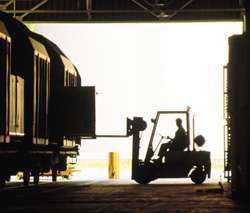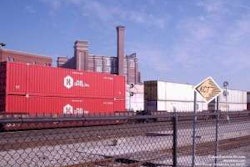
In comments filed with the Pipeline and Hazardous Materials Safety Administration, the American Trucking Associations has asked the agency to withdraw its proposal to regulate the loading and unloading of hazardous materials in order to conduct needed research.
“ATA supports PHMSA’s efforts to reduce loading and unloading incidents,” says Richard Moskowitz, ATA vice president. “However, we cannot support the proposed rule as written on the grounds that it will frustrate motor carriers’ ability to comply with the hazardous materials regulations, makes it unlikely that drivers will be properly trained and its costs will far exceed its benefits.”
PHMSA on March 10 announced a Notice of Proposed Rulemaking that would require additional training for employees and new safety requirements for motor carriers and facilities that transfer hazardous materials to and from rail cargo and highway cargo trucks. PHMSA says its data show that the most dangerous part of transporting hazardous materials by highway cargo trucks and by rail occurs when the hazardous material is being transferred by hose or pipe between the holding facility and the rail or truck transporting it, and that human error and equipment failure also cause the greatest number of incidents during loading and unloading operations.
The NPRM would require practice drills and classroom training of truck drivers and other workers who unload or load hazardous material, training on automatic valve shutdown to ensure the systems are in place and that employees know how to use the systems, and developing inspection and maintenance programs to ensure the safety of hoses, valves and other equipment used in loading and unloading.
Moskowitz told PHMSA that the goals of the latest proposal “could be best achieved through standardized regulations applicable to loading and unloading for carriers and by requiring facility operators to address and remain responsible for managing unique conditions at their facility. … PHMSA should withdraw the proposed rule and begin an evaluation of regulatory requirements to address the specific causes of loading and unloading incidents.”
Over the past 10 years, fatal and serious accidents during the process of transferring hazardous materials between rail or trucks and holding tanks prompted two related recommendations from the National Transportation Safety Board and one from the Chemical Safety Board.











